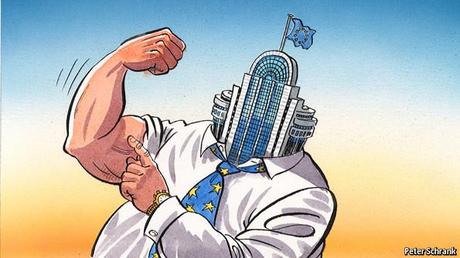
FRIEDRICH NIETZSCHE, an early advocate of European unity, introduced the concept of the Übermensch, a heroic figure whose concerns rise above those of ordinary beings. The European Parliament, home to a number of political also-rans and second-raters, is not overflowing with such specimens. But it neatly embodies another of the philosopher’s ideas: the will to power.Armed with the superficially attractive argument that it is the only European institution directly accountable to voters, the parliament has accrued powers over the past few decades. Like a child receiving sweets, each goody it acquires feeds its demands for more. Since the first European elections in 1979 the parliament has earned the right to veto appointments to the European Commission (the EU’s executive arm, reshuffled every five years), won approval rights for the vast majority of EU legislation, and expanded, as the EU enlarged to central and eastern Europe, to 751 members, making it one of the largest parliamentary chambers in Europe. Its political groupings may be unwieldy and its priorities sometimes odd, but it is no longer Europe’s ugly duckling.Much of the…

